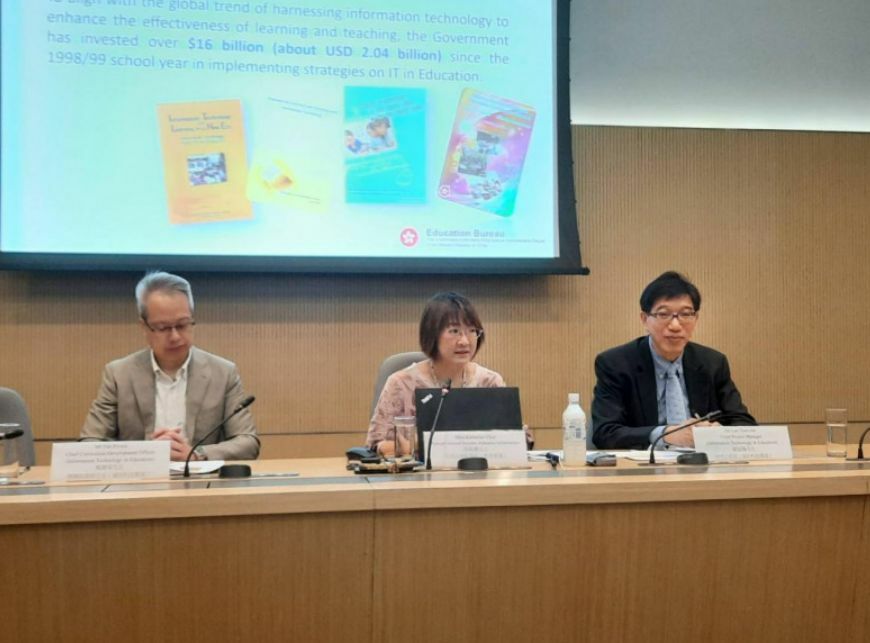Edtech collaboration: Hong Kong and Thailand unite to enhance education

Hong Kong extended an open invitation to Thailand to engage in a meaningful Edtech collaboration aimed at advancing educational technology in both regions. This is to enhance student learning and facilitate teachers in crafting personalised lessons and promoting active classroom engagement.
The EdTech collaboration was discussed during the Edtech Month Summit 2023 held recently in Hong Kong. The summit centred around the role of technology in reshaping education systems worldwide and offered a platform for dialogues on the potential contributions of EdTech not just within Hong Kong but globally.
Katherine Choi, who holds the position of Principal Assistant Secretary (Education Infrastructure) at the Hong Kong Special Education Bureau and is entrusted with the promotion of educational technology, suggested that Thailand could emulate Hong Kong’s successful integration of Information Technology (IT) in education.
Choi praised Hong Kong’s systematic and effective implementation of education technology and expressed eagerness about potential collaborations with nations such as Thailand on EdTech initiatives.
She highlighted the role of the Hong Kong Special Administrative Region (HKSAR) and the Government’s Economic and Trade Office in Bangkok in facilitating bilateral communication.
Elaborating on Hong Kong’s multi-dimensional approach to IT in education, Katherine mentioned the focus on infrastructural and mobile hardware and software, including training, peer group support, and promotion of information literacy. Choi believes this approach could serve as a valuable reference for Thailand in outlining its EdTech strategy.
Technology boosts learning
In line with the global trend of leveraging IT to boost learning efficacy, the Hong Kong government has invested approximately US$2.04 billion (73.7 billion baht) since the 1998/99 school year to implement IT education strategies.
Efforts have been directed towards enhancing school infrastructure, including providing Wi-Fi support in government-funded public schools, Choi revealed.
“We have established a Wi-Fi campus for all public-funded schools [about 1,000 schools] in Hong Kong, which allows students to use mobile computing devices for e-learning anywhere on campus. Each school now, on average, owns over 200 mobile computer devices for learning and teaching.”
Moreover, the Hong Kong government offers e-learning subsidies under the Composite Information Technology Grant (CITG). During the 2022/2023 school year, each school received a CITG ranging from US$33,900 to US$110,600, depending on the school type and number of classes.
The funds from this recurrent grant can be utilised to subscribe to Wi-Fi services, purchase and upgrade different software and hardware for online teaching, and bolster IT staffing support. The government also provides the Information Technology Staffing Support Grant (ITSSG), through which each school receives a yearly sum of US$42,500 to enhance its IT staffing support.
To augment teachers’ technological knowledge, the Hong Kong government has introduced the Professional Development Programmes (PDPs), covering a wide range of topics from pedagogy and Stem-related subjects to e-learning, technology, information literacy, and blended learning.
Challenges of e-learning
While technology has significantly contributed to child development, it has also exposed children in Hong Kong to misinformation, internet addiction, and cyberbullying. To equip students with IT literacy, the Education Bureau launched the Information Literacy for Hong Kong Students framework, covering nine literacy areas aimed at growing students’ knowledge, skills, and attitudes, reported Bangkok Post.
The education bureau has also bolstered teachers’ information literacy through PDPs, offering both basic and advanced levels of information literacy to enhance teachers’ understanding of emerging information technologies and their capability in planning, implementing, and evaluating the IT curriculum, said Choi.
“The Education Bureau has been providing teachers with e-learning resource kits, and collaborating with different government departments and NGOs. For example, we have got assistance from Hong Kong police in providing information on scams, intellectual properties and fake news to produce teaching materials to assist schools in teaching information literacy to students.”
Follow more of The Thaiger’s latest stories on our new Facebook page HERE.
Latest Thailand News
Follow The Thaiger on Google News:


























